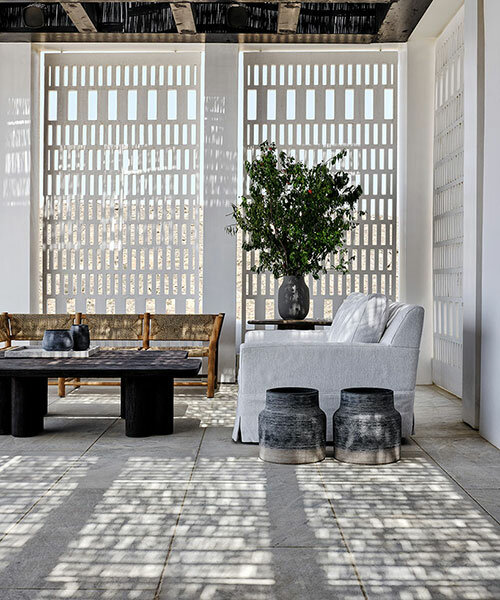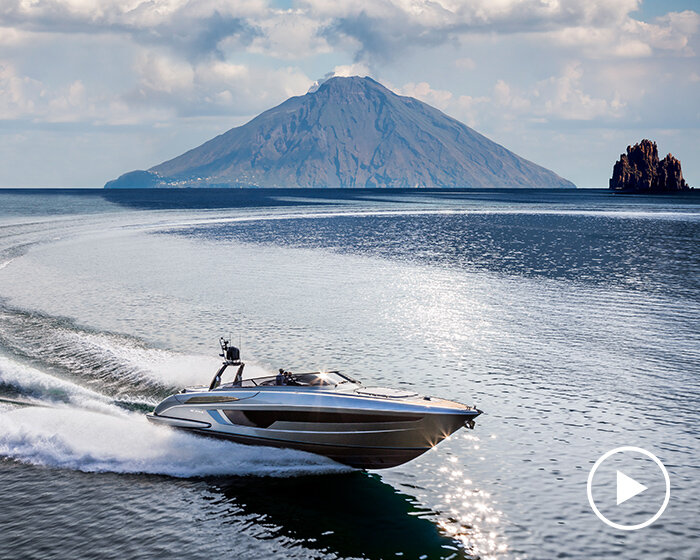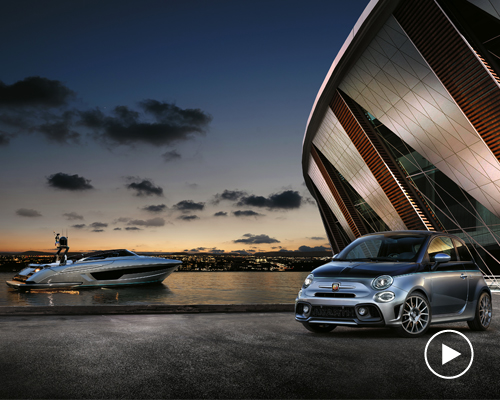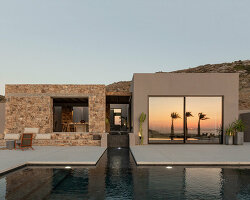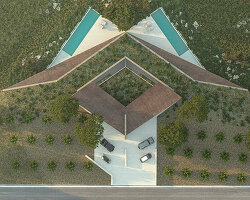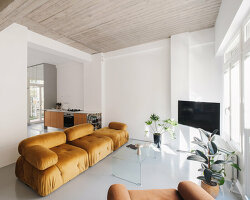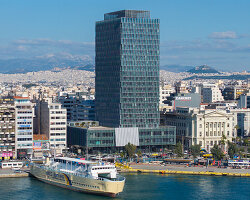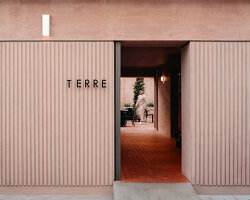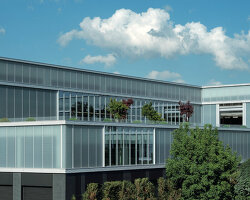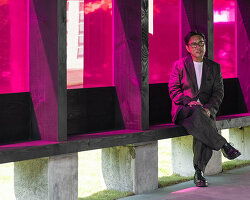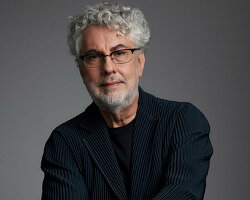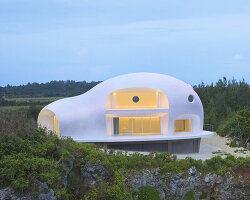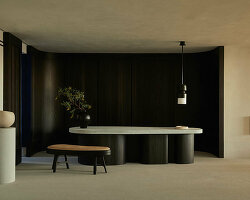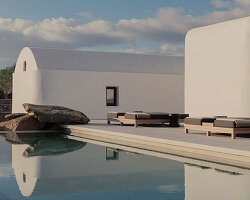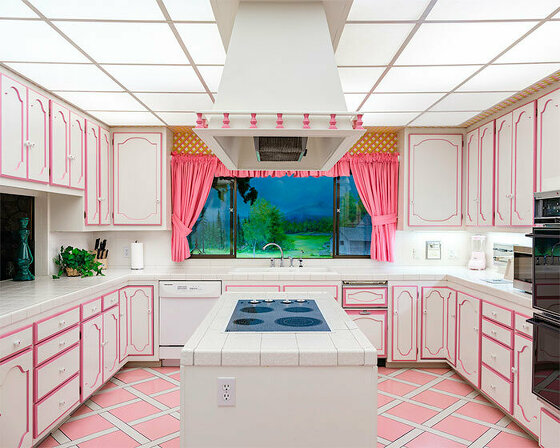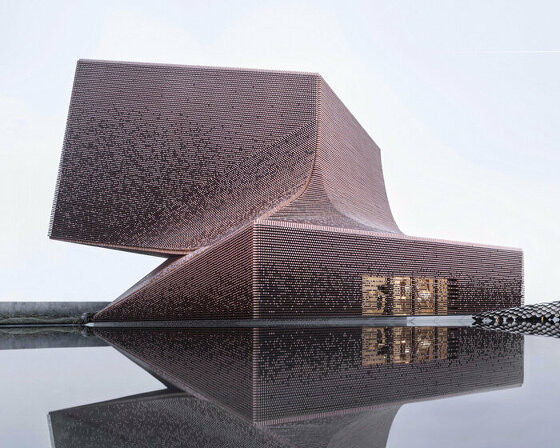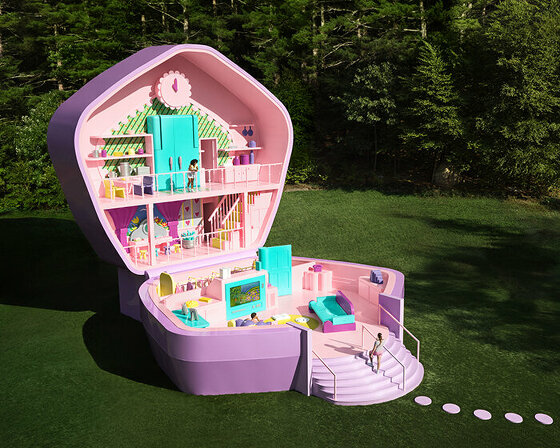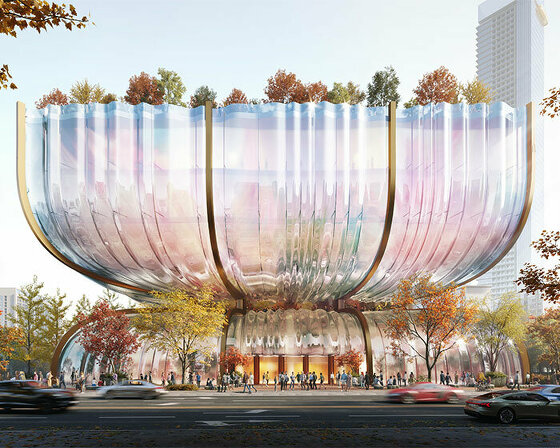DIVE INTO STUDIO BONARCHI’s design philosophy
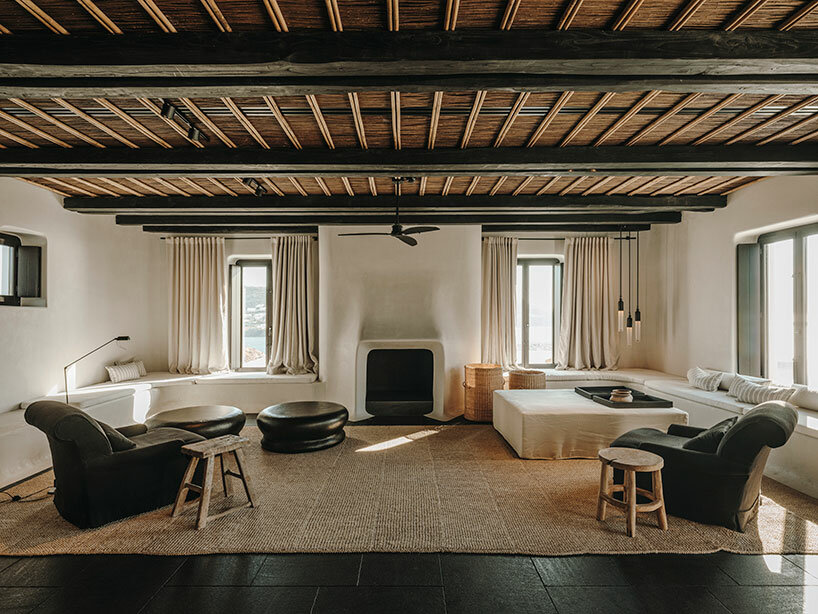
Kalesma Hotel in Mykonos | image by Salva Lopez
INTERIORS CRAFTED THROUGH THE STUDIO’S INTERPRETATION OF BEAUTY
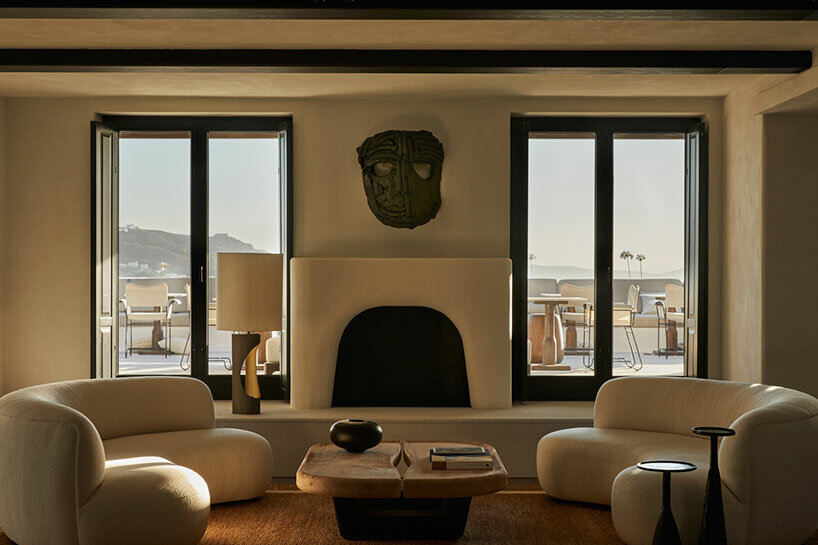
Anandes Hotel in Mykonos | image by Helen Cathcart
INTERVIEW WITH STUDIO BONARCHI FOUNDER, VANGELIS BONIOS
designboom (DB): What are the origins of Studio Bonarchi? What inspired you to start this venture?
Vangelis Bonios (VB): Studio Bonarchi stems from my need to understand what beauty means and to share the result of this coherent process with my clients and collaborators. I believe that a design studio reflects the creator’s understanding of harmony, beauty, and composition, and it is through our creations that we share this perception with a broader audience. This endeavor reflects my deep passion for design and my love for interiors, which I have held since a very young age.
Studio Bonarchi and the results of our creative process blend these two influences: my homeland, Greece, my desire to feel, understand, and explain it, and the endless game that begins with the visual stimuli encountered worldwide. My travels, the hotels I love and visit, and the metropolises of Europe, with which we are in constant dialogue, all contribute to this blend. As I have mentioned before, this is a dipole between a Greek soul and an international perspective. These two elements—something internal and something derived from an external search for inspiration—merge to create a final product based on the specific characteristics that my collaborators and I love.
At Studio Bonarchi, our approach is so clear and bold that only the perceived concept changes; the core idea remains the same. It is the Greek soul with an international perspective.
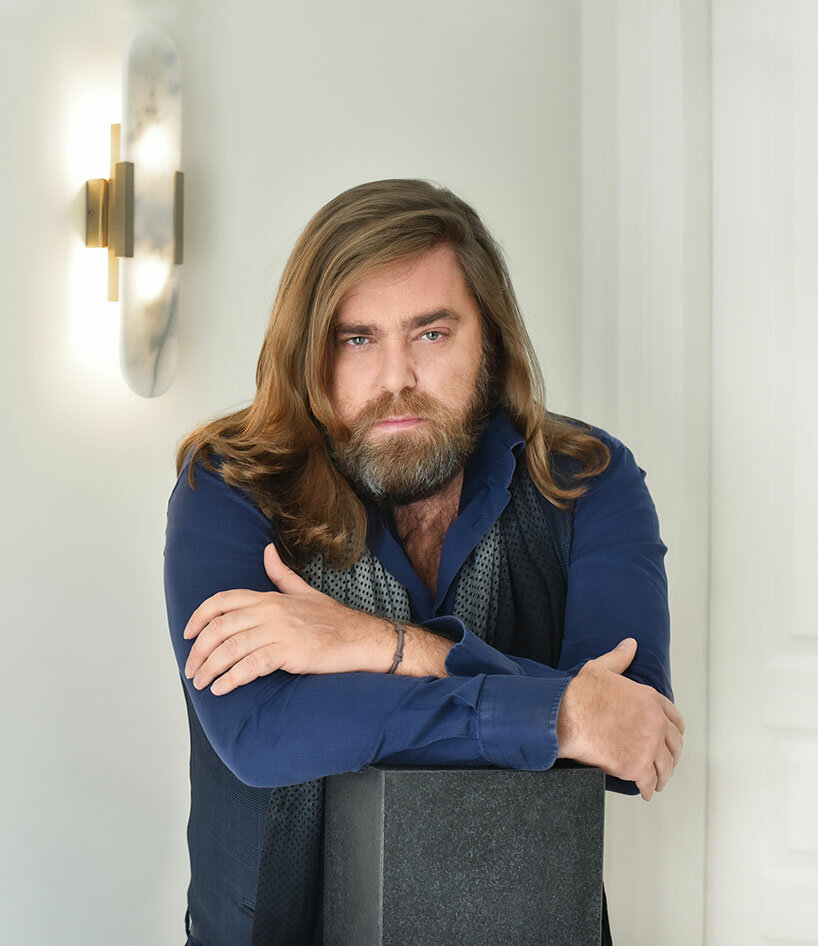
Vangelis Bonios portrait | image by Olympia Krasagaki
DB: What drew you to interior design?
VB: It was an automatic situation; there was no choice. The first interior design magazine I got was when I was eight years old, and it really intrigued me. There was also a series of design books at my parents’ house. I was fascinated by the power of synthesis—how different shapes, colors, and choices can create a space that surrounds people with such dynamism and completeness. It’s about creating a world within another world that essentially reflects the lifestyle of the user. This concept, where, from something very large, you end up creating another equally strong world, feels almost divine. It’s about choosing from a collection of stimuli to reuse and define a way of life. This incredible devotion to interior design is a psychological one. It is not just a profession; it is a filter for understanding the world. The purpose is to create meaningful and dynamic spaces that resonate deeply with those who inhabit them.
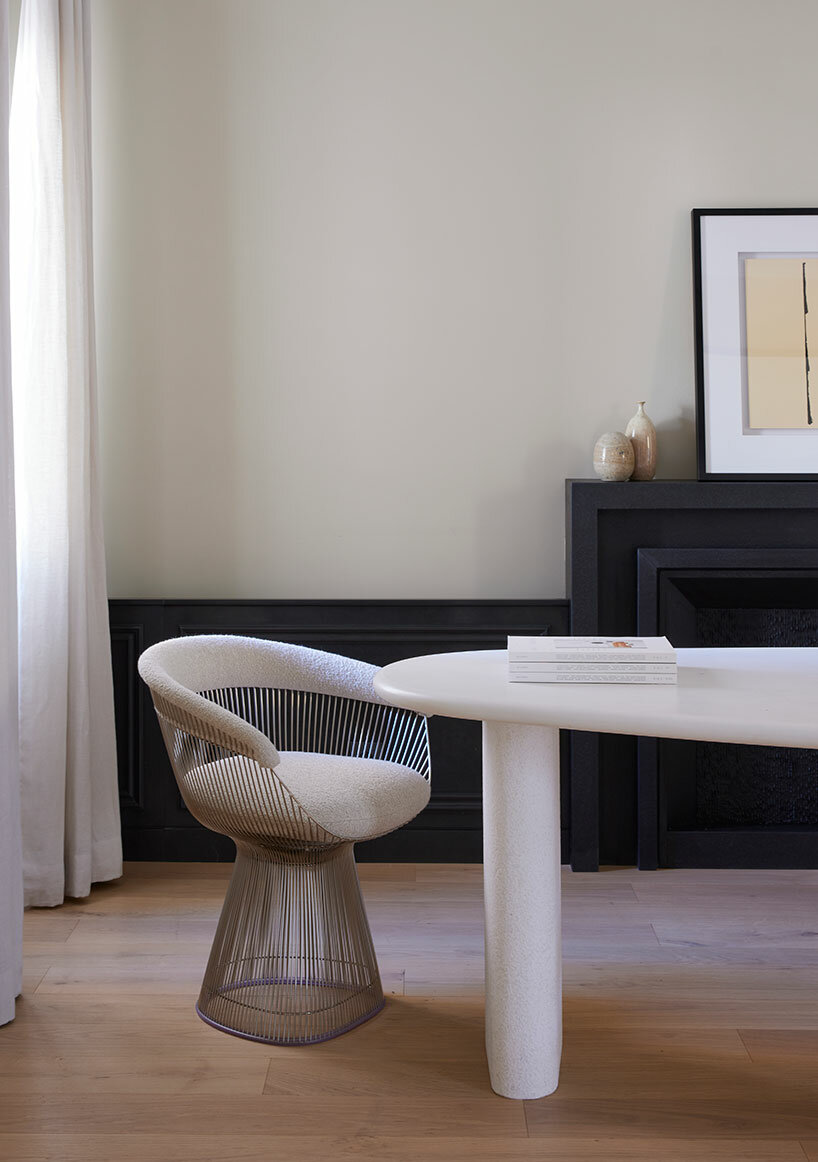
Studio Bonarchi headquarters in Pangrati, Athens | image courtesy of Studio Bonarchi
DB: Can you describe your design philosophy? What are the core principles that guide your work?
VB: Studio Bonarchi is characterized by a search for composition, textures, and the local idiom, creating compositions that arise from the analysis of these elements. This philosophy underpins all our projects and reflects an almost obsessive approach to the interplay between light and dark. This juxtaposition appears in all our works and carries a philosophical extension for us. We aim to define and create a frame that balances beautifully and harmoniously between darkness and light. As a design studio based in Athens, Greece, we also study projects on the islands, where the interplay between light, and its absence, defines all principles of composition.
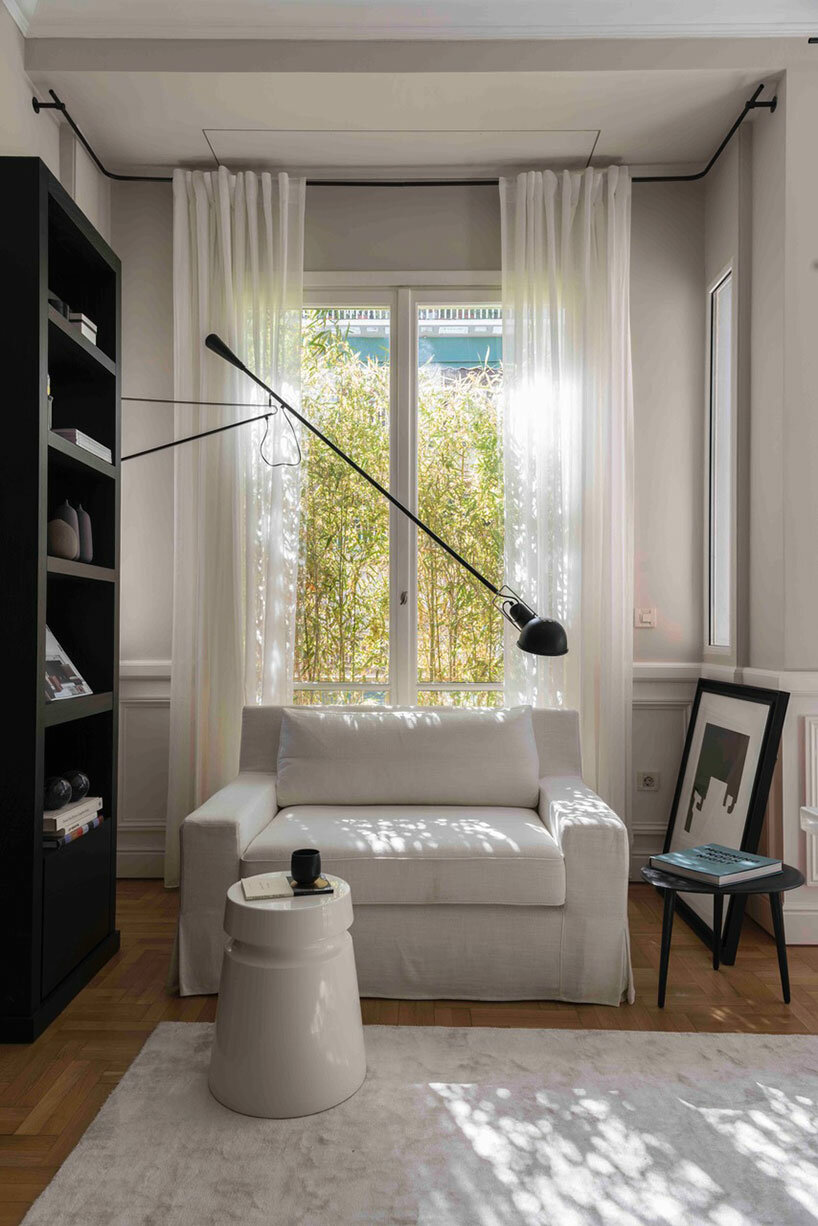
Studio Bonarchi headquarters in Pangrati, Athens | image courtesy of Studio Bonarchi
DB: In what ways do you stay inspired and keep your designs fresh and innovative in a constantly evolving industry?
VB: I do not feel the need to produce something innovative merely for the sake of it. I am very interested in creating a beautiful composition that stands the test of time, independent of trends. I strive for a timeless aesthetic—a product that doesn’t need to be reborn to remain relevant. It stands on its own with inherent strength. I stay focused on observing my place’s idiom and the forms resulting from Greek heritage, always combined with international trends. I am particularly interested in flexible design and creators who, despite their diverse origins, relate to the principles of a Greek spirit. For example, Axel Vervoordt, whose philosophy revolves around returning to the archetype and the quest for fine form and its relationship with light, is an inspiration. I also follow the French design scene closely, appreciating its uniqueness and the resulting forms, in contrast to the mass production typically found in the Italian scene, for example. Although I studied in Milan and was influenced early on by the Milanese design scene, I have detached myself from it, seeking more unique pieces and particular forms related to galleries rather than mass production.
This approach is evident in Anandes, where some items are unique and custom-made rather than mass-produced. For instance, the wall sconces by Philippe Anthonioz the patina of the material, and the brass lamp by Thierry Lemaire to the left of the fireplace follows the logic of an art gallery object rather than a mass-produced item. My inspiration comes from both my local environment and the international scene, where unique objects and forms are depicted. I am very interested in what artists produce in different countries and how these pieces can fit into my compositions, even if they originate from a different culture.
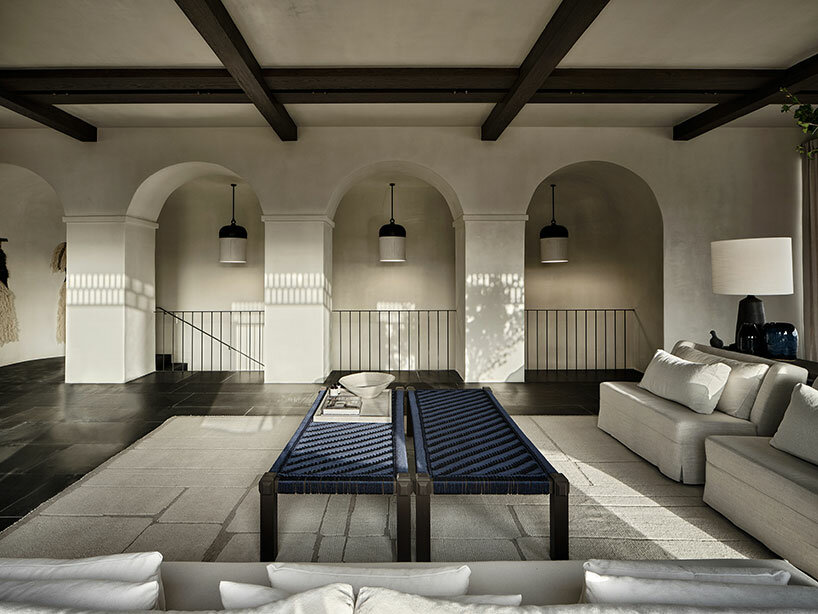
Odera Hotel in Tinos | image by Christos Drazos
DB: How do you handle creative blocks or challenges during a project? How much do client inputs and collaborations influence your designs?
VB: As the founder of an office working with many creative people—designers, architects, and creators—there is not much room for creative blocks. An automatic way of thinking, a process of automation, has been established, linked to the analysis of data that leads to the birth of an idea. In other words, creative blocks don’t really exist for us. This process can be very quick at times and slower at others, but I wouldn’t describe it as a block. It’s about the need for each project to generate a fresh idea, depending on how much the initial brief, the client, and the project itself provide.
For example, when clients approach me and say, ‘Vangelis, we want to create a hotel,’ I start by asking about their vision and brief. If I don’t have an answer, producing a concept becomes difficult, and I may choose not to go on with the project. A creator needs a story, a brief, and a vision provided either by the owner or the place itself. The existing elements in a project feed our inspiration. It’s not about imagining things out of nowhere; we don’t start creating concepts randomly. Anandes is what it is because it had to be that way after analyzing its position in Mykonos and the cosmopolitan nature stemming from the owners’ disposition. The Anandes owners have an international profile and projects all over the world, so it was logical to develop a concept related to cosmopolitanism, not just local Cycladic hospitality. Anandes is shaped by Karim El Chiaty, a local from Mykonos, giving it a flair and cosmopolitanism that comes from his lifestyle and understanding of what he wants to offer. The fact that this family provided works of art alongside the interior design reflects their international profile. Therefore, the project and its data always provide inspiration and the foundation for creation. When there is no initial brief or vision, that’s when a block occurs.
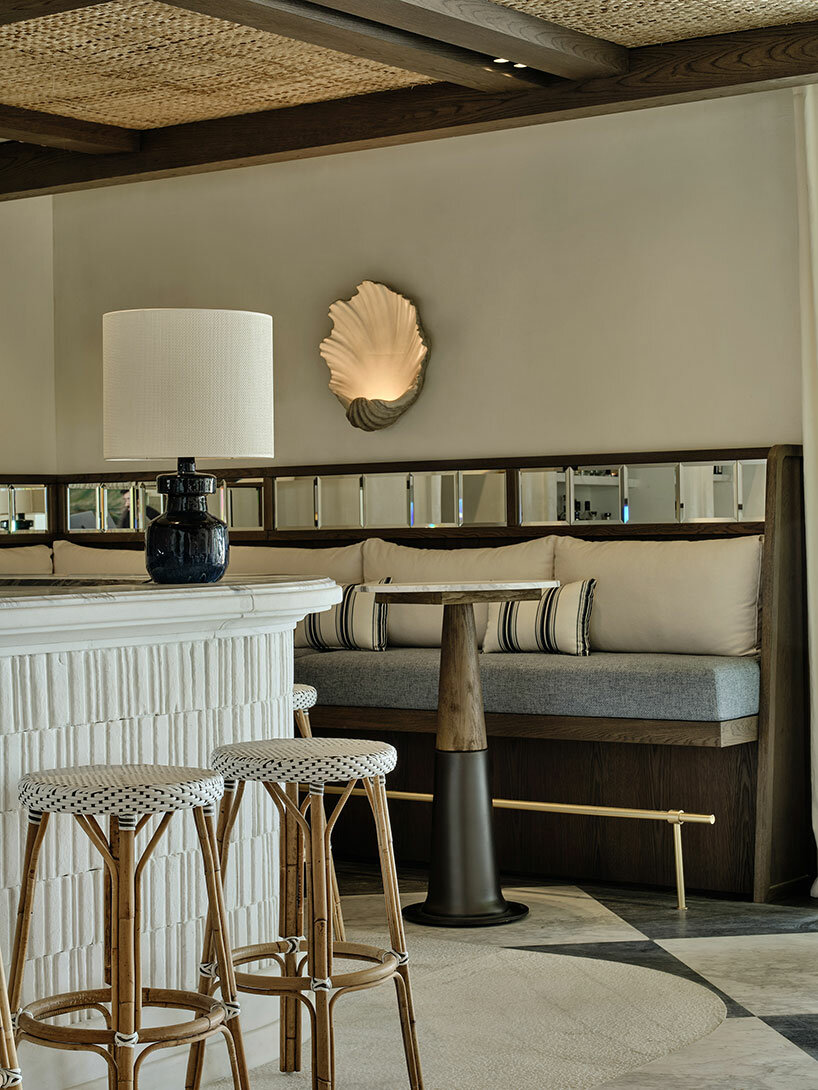
Odera Hotel in Tinos | image by Christos Drazos
VB: We are undoubtedly turning towards the handmade for uniqueness. The culture of craftsmanship holds significant dynamic power. Whether in industrial design or interior design, the most interesting projects are those that incorporate objects and forms arising from handmade techniques. I believe that in the coming years, this will be a major response to mass production. The power of handmade items will always move us deeply because they capture human dynamism intensely. Handmade creations fully represent human effort, and in contrast to the industrialized world, the return to touch, unique perspectives, and the emotions they evoke are incredibly important. Those of us who have feel this will continue to seek it out.
Additionally, I see a trend toward revisiting the past, bringing back aesthetics that have decisively shaped the Western world. We won’t be afraid to return to the aesthetics of the Seventies or the Mediterranean way of life, which were vividly captured in France and Italy and created trends with a strong visual impact. This involves a renewed appreciation for design standards in interior design, embracing clichés without fear. When seeking something genuine, creators will return to what was once considered cliché, but with a fresh and unapologetic perspective. We will want to relive what was once so powerful and beautiful. I believe this is the next trend: a return to the charming cliché.
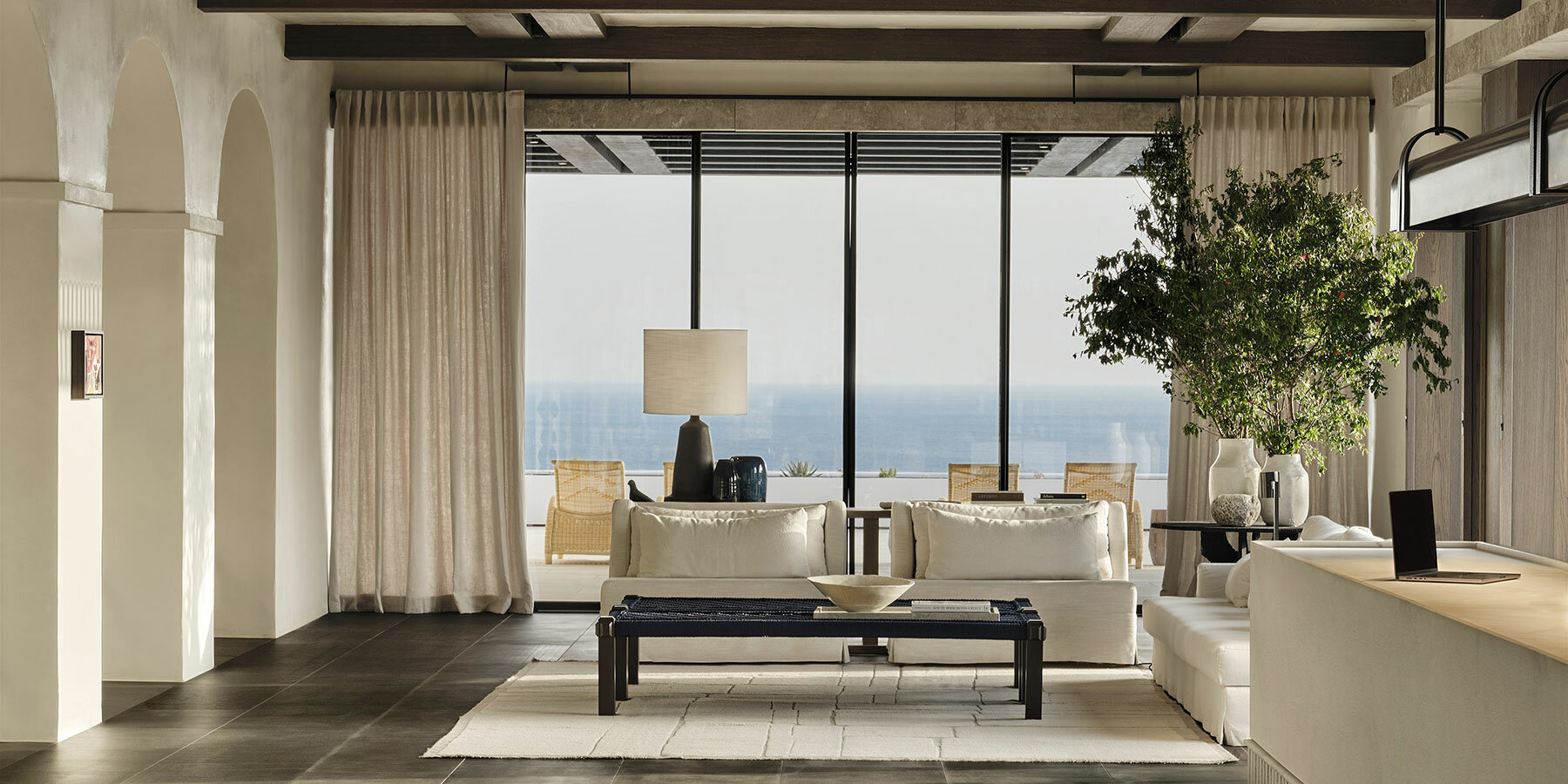
Odera Hotel in Tinos | image by Christos Drazos
DB: How do you see the future of design evolving, especially with advancements in technology such as AI?
VB: At some point, I accidentally saw an image of one of our projects created by one of our collaborators using AI, without my knowledge. I was really impressed by the particularity of some elements in this image, and I thought to myself, ‘How did they come up with this?‘ Then I realized it was generated by AI. Despite my initial admiration, the image had significant omissions in terms of understanding the brief and addressing the requirements of the space.
I believe no analysis of technical data alone can connect with the intuitive perspective that brings a convincing gaze and psyche, which only a human can offer. AI can produce results much faster, but it will never achieve 100% understanding of the nuances and depth that human insight provides. While AI can yield impressive results, it lacks sensitivity, the power of memory, and the need to create something truly human.
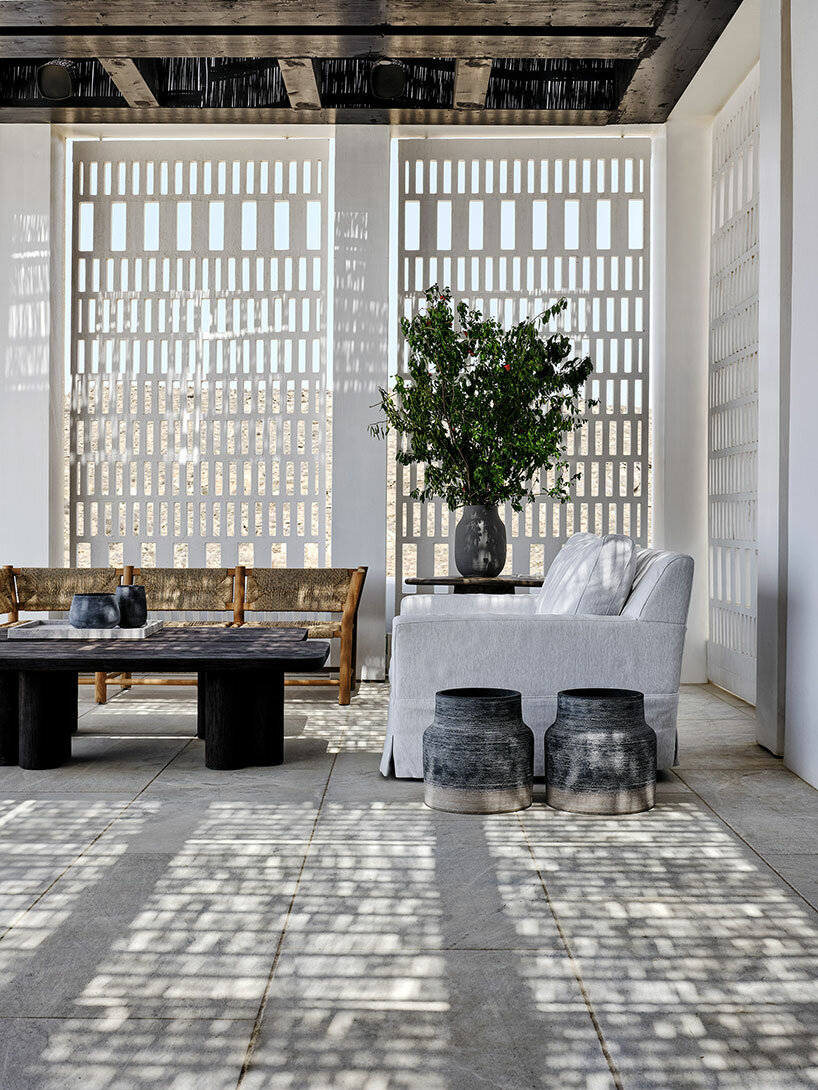
Odera Hotel in Tinos | image by Christos Drazos
DB: Could you share some of your favorite projects that you’ve worked on and what made them special?
VB: Among the projects we’ve completed, the Kalesma Hotel stands out as a favorite. As the first hotel project our office undertook, it holds a special place in my heart because it created a fertile creative space for both my collaborators and me. This project laid the foundation for developing any other hotel concept. The three parameters that define the completeness of a creative project—time, carte blanche from the clients, and the ability to produce the best possible product within the budget—were all met in this project. These three elements are crucial for the strength of a project. Kalesma trained our minds through extensive research and intuitive analysis, enabling us to approach future projects with confidence and creativity.
In addition to Kalesma, various smaller urban projects, such as apartments and private homes, also stand out. These projects convey a solid, distinctive identity, often influenced by the strong relationship between the owners and the project. Alongside Kalesma, I must also mention Anandes, which succeeded in creating a fresh breath of cosmopolitanism, contrasting the traditional profile of the Aegean, the islands, and the Mediterranean that pervades many of our projects. My collaborators and I needed to demonstrate that it’s possible to create a summer hotel on an estate previously governed by different principles. Anandes achieved this with its good finishes, luxurious materials, elegant forms, and a quest for a Greek chic style.
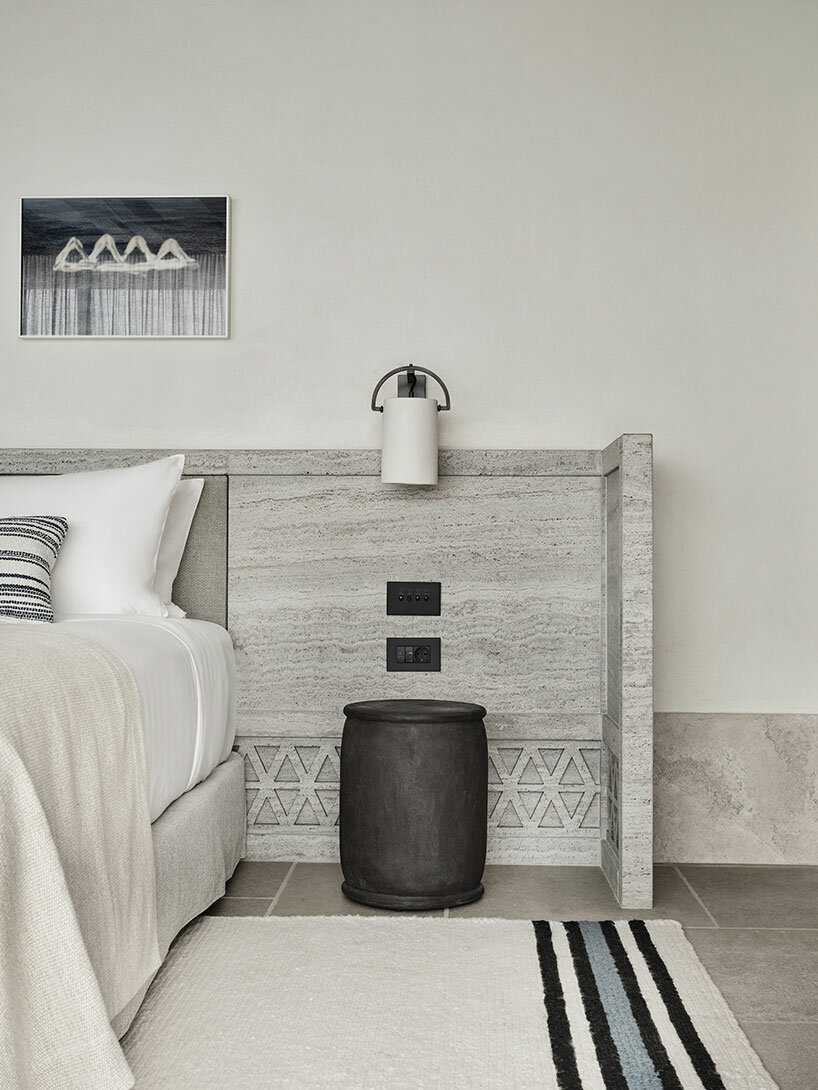
Odera Hotel in Tinos | image by Christos Drazos
DB: What is the concept behind the Anandes Hotel’s design? Did you face any challenges during the renovation?
VB: This project is about a five-star hotel located at the top of Mykonos town, heavily influenced by the Cycladic idiom. This idiom is evident in the central idea that incorporates white color and organic shapes, characteristics of Cycladic architecture. Our goal was to reinterpret this aesthetic and translate it into the present day by blending it with contemporary design and various iconic design elements. We believe these elements convey a similar sense through their organic forms and presence within the white environment we created for the hotel.
One of the challenges we faced was adapting our desired typology and style to an existing building with many different individual geometries. Since it was a pre-designed building, we had to apply our concept to various dimensions while respecting the existing conditions. The main idea revolves around a dark background that contrasts with various white elements within the space. This clear initial concept allowed us to adapt it to the individual geometries we encountered. Additionally, structural adjustments were necessary to achieve the high-end result expected of a five-star hotel.
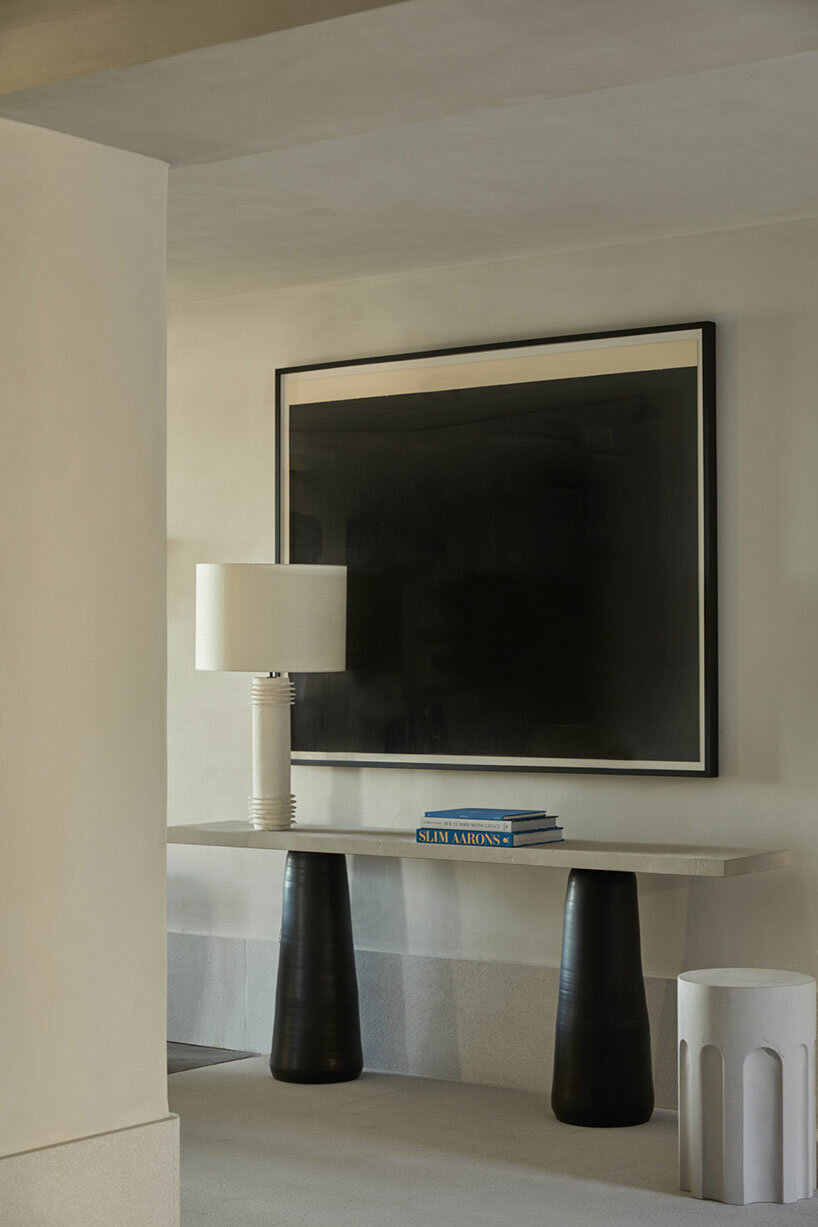
Anandes Hotel in Mykonos | image by Helen Cathcart
DB: Are there any upcoming projects or collaborations you’re particularly excited about?
VB: I am particularly excited about a project we have just begun: an Aman hotel in Jackson Hole, Wyoming, where we are acting as interior design consultants. Transitioning from the Greek landscape and sea views to the mountains of Wyoming and exploring how to create an aesthetic identity with both common elements and necessary differentiations is intellectually stimulating. This excites me because we will analyze different data from the perspective and concept of Studio Bonarchi. I am, in general, a person driven by enthusiasm. I think what generally excites me is the trust people have in the office and how an office that was born five years ago has managed to find such trust and understanding, especially from people who understand what we are trying to do. This excites me. I am excited by the understanding of others towards the office and the trust. And of course, the ability to produce some projects abroad without forgetting, of course, that our most important works will be in the Greek land because I am always interested in returning.
As I said at the beginning, I feel the need to return to my country and my place. As excessive as it may sound, I believe that a traveler, a walker in the world, owes to bring everything they have learned along the way back to its origin.
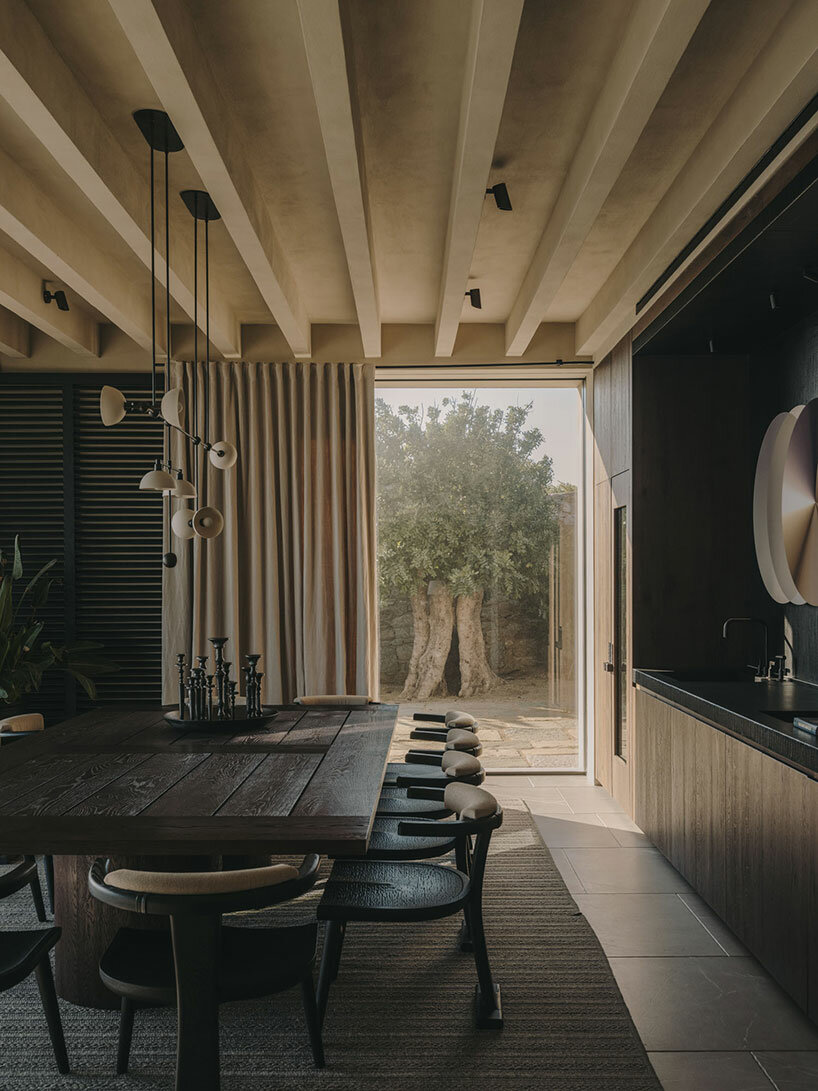
Residence in Mykonos | image by Salva Lopez
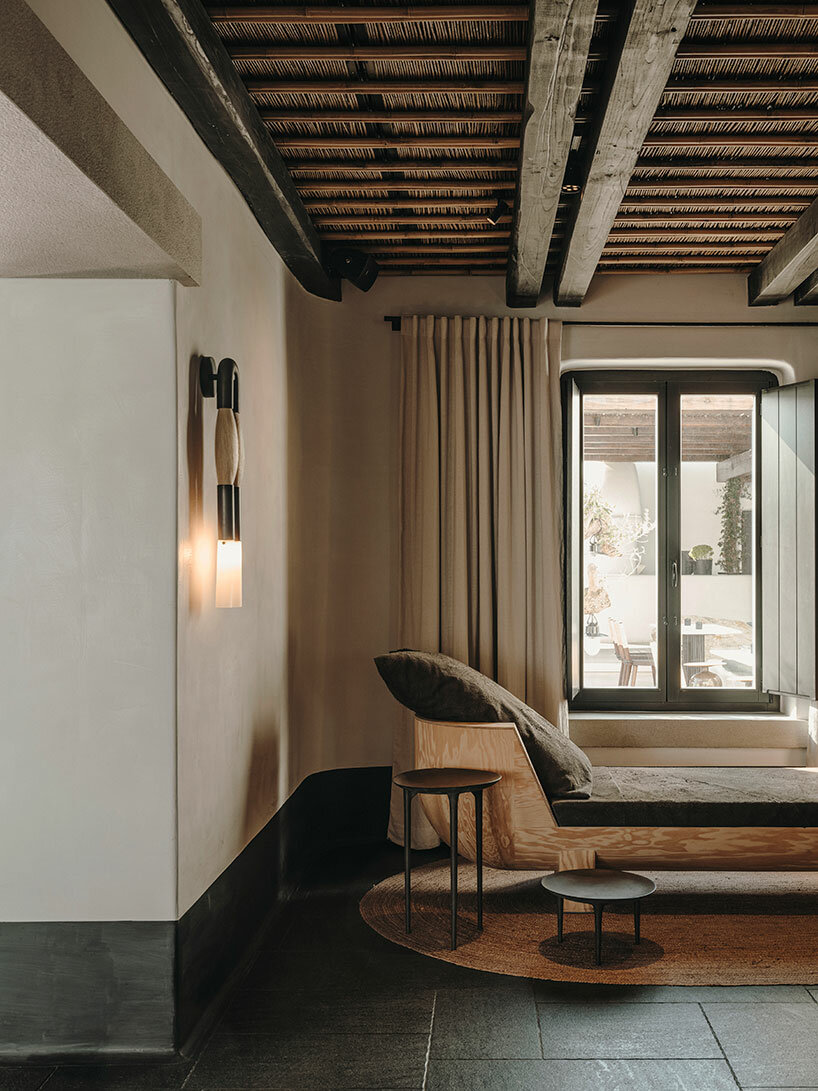
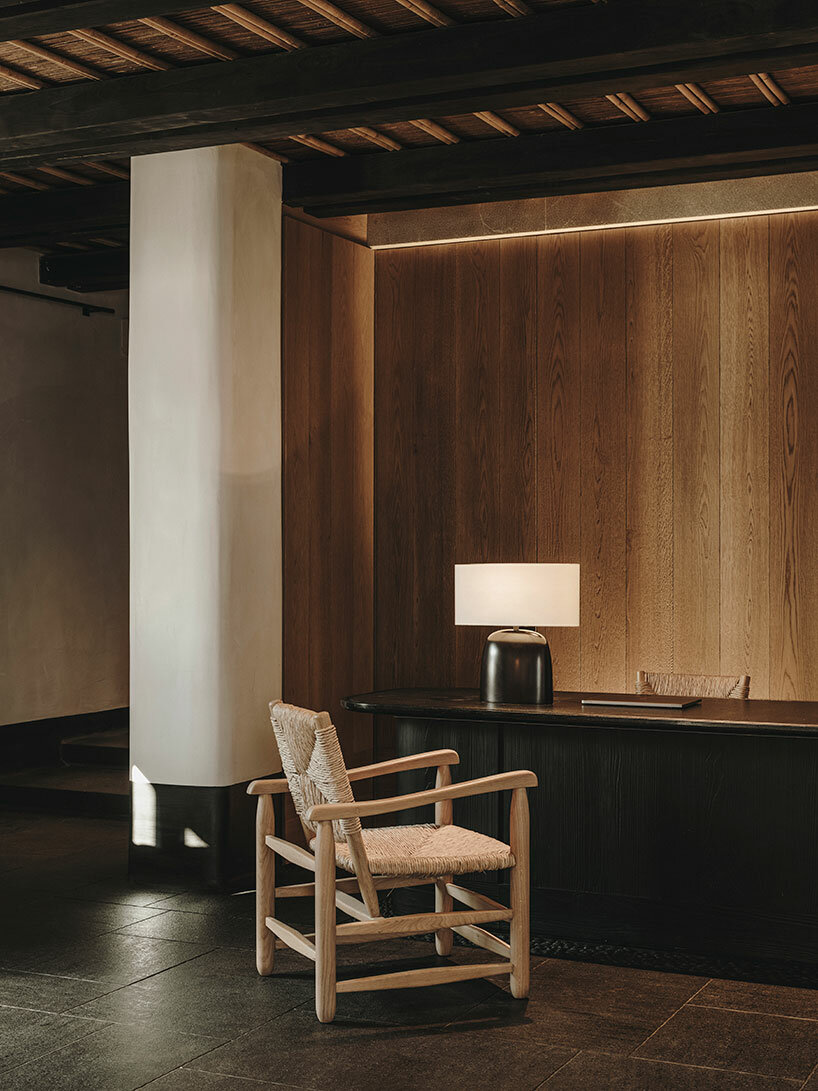
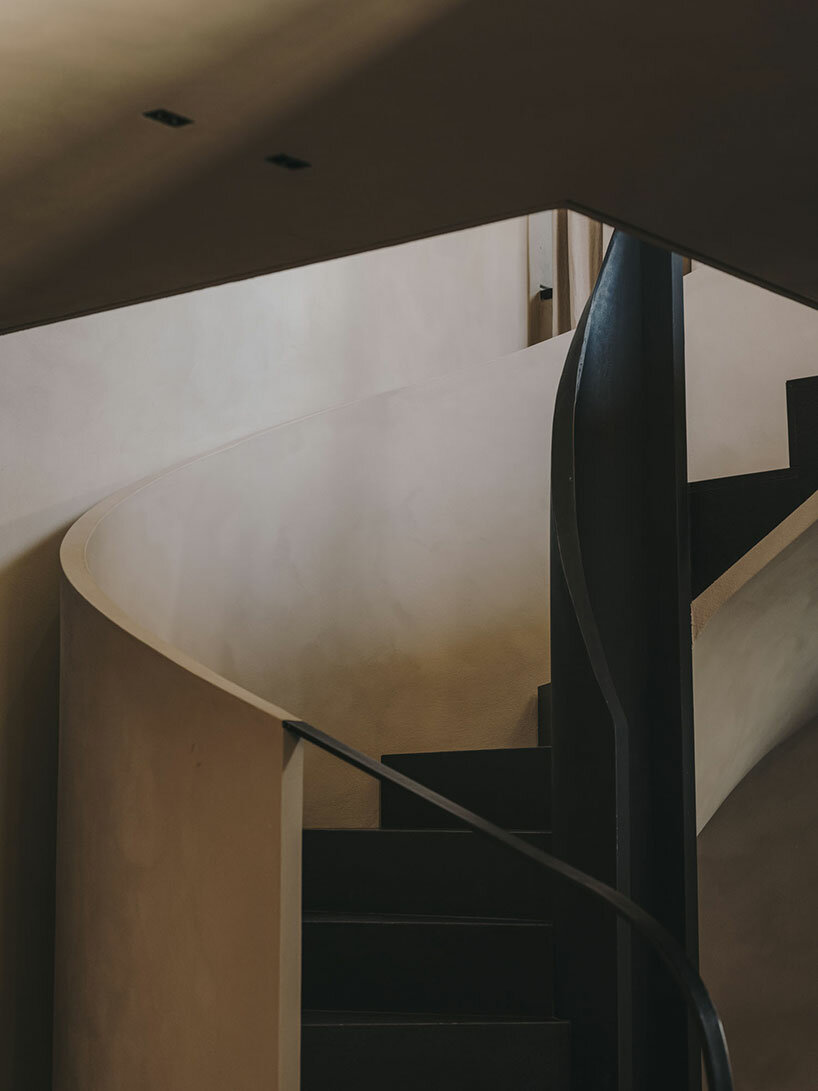
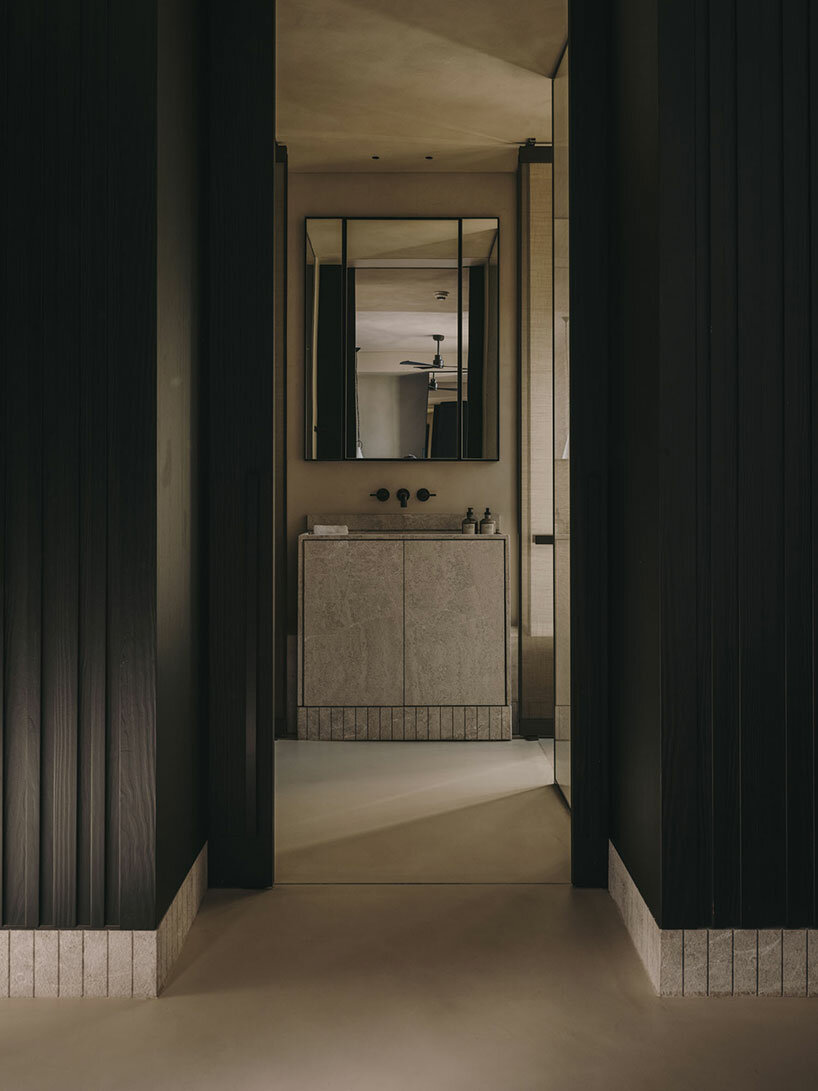
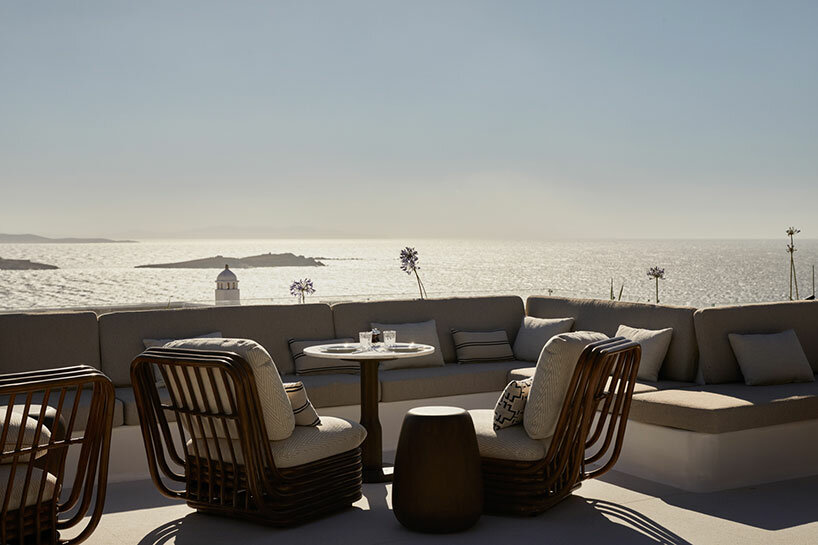
project info:
studio: Studio Bonarchi | @studiobonarchi
location: Pangrati, Athens, Greece
happening this week! discover riva, the historic brand that blending technology and tradition, reinventing a contemporary, modern, and unique style for fiberglass yachts between 27 and 164 feet in length.
architecture in greece (258)
architecture interviews (268)
studio bonarchi (3)
PRODUCT LIBRARY
a diverse digital database that acts as a valuable guide in gaining insight and information about a product directly from the manufacturer, and serves as a rich reference point in developing a project or scheme.
